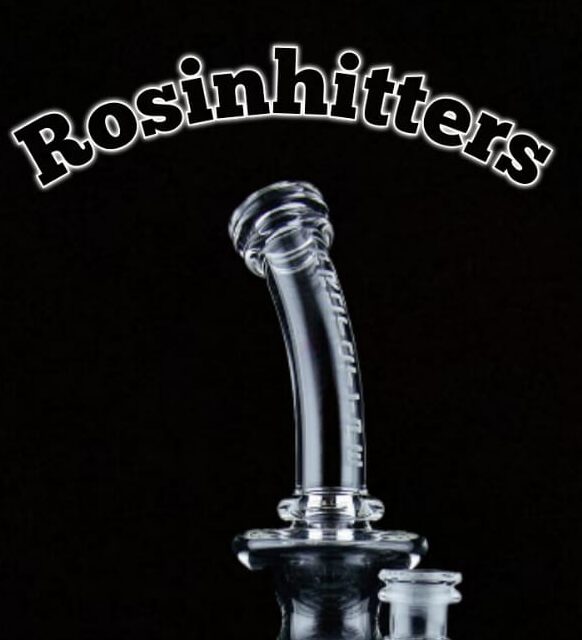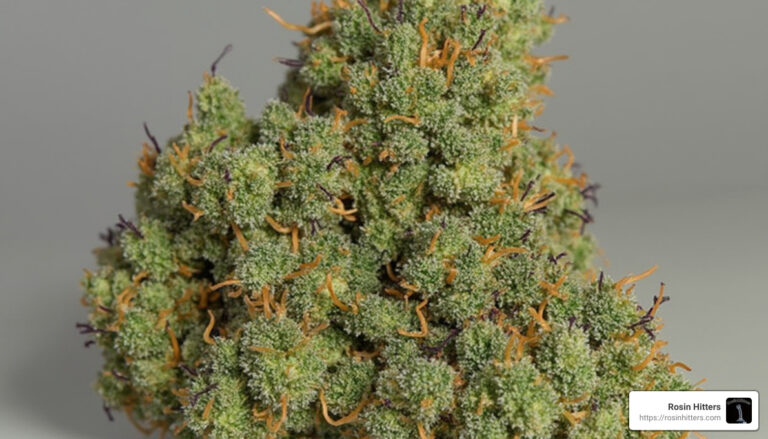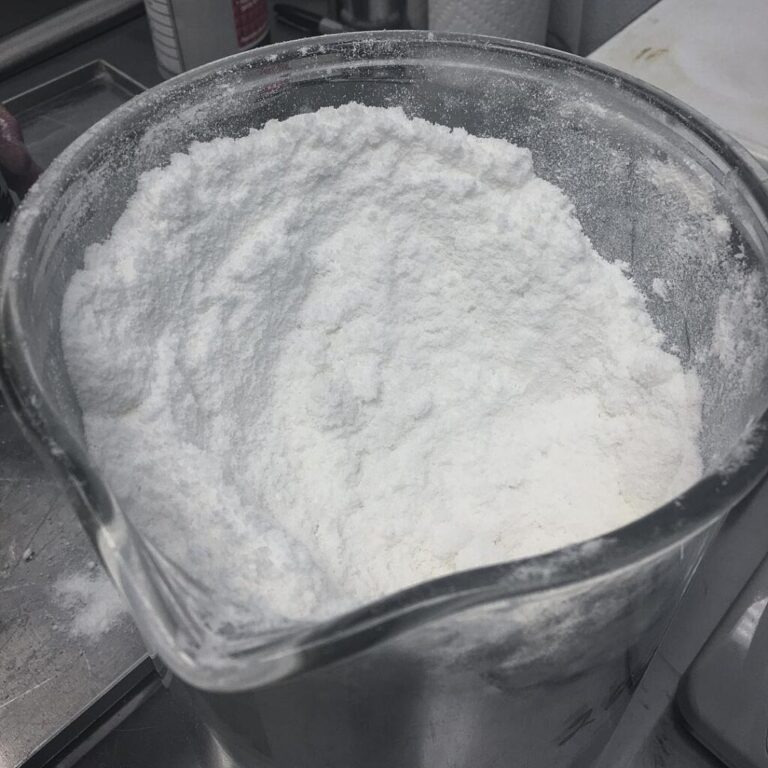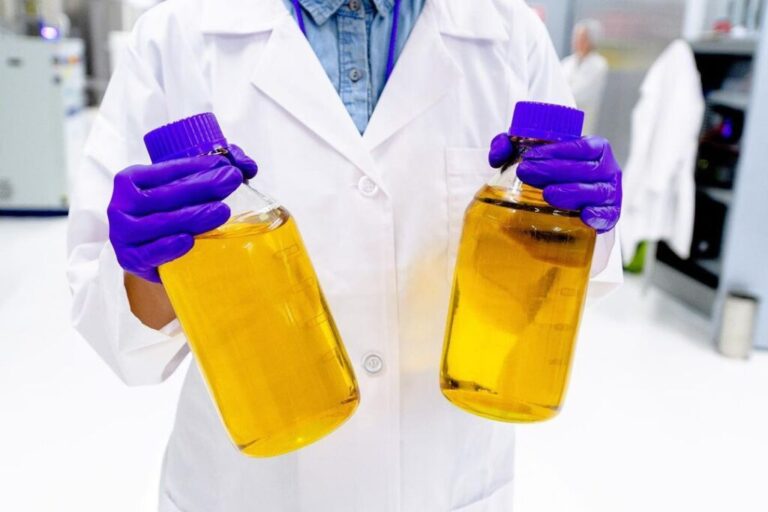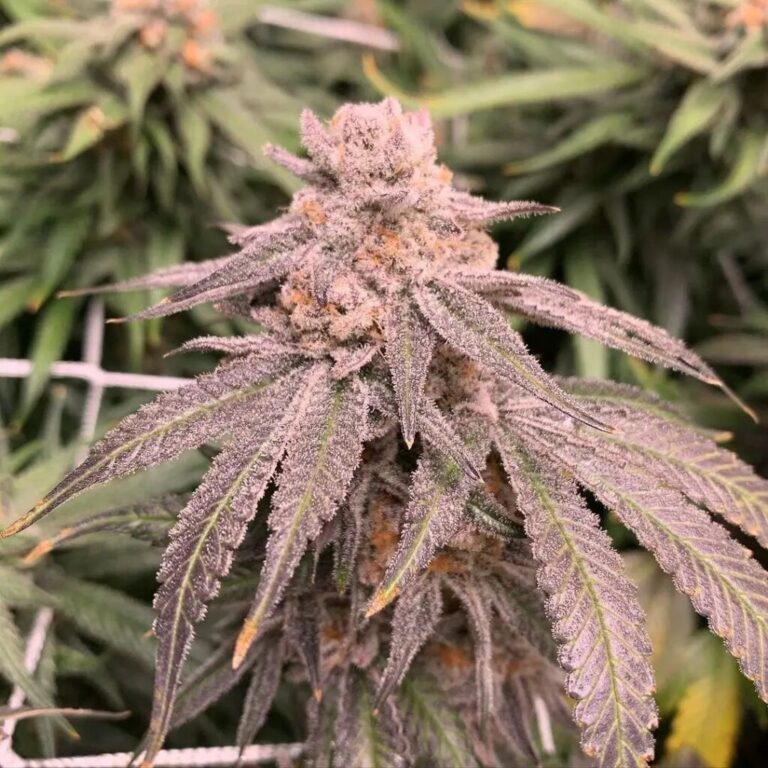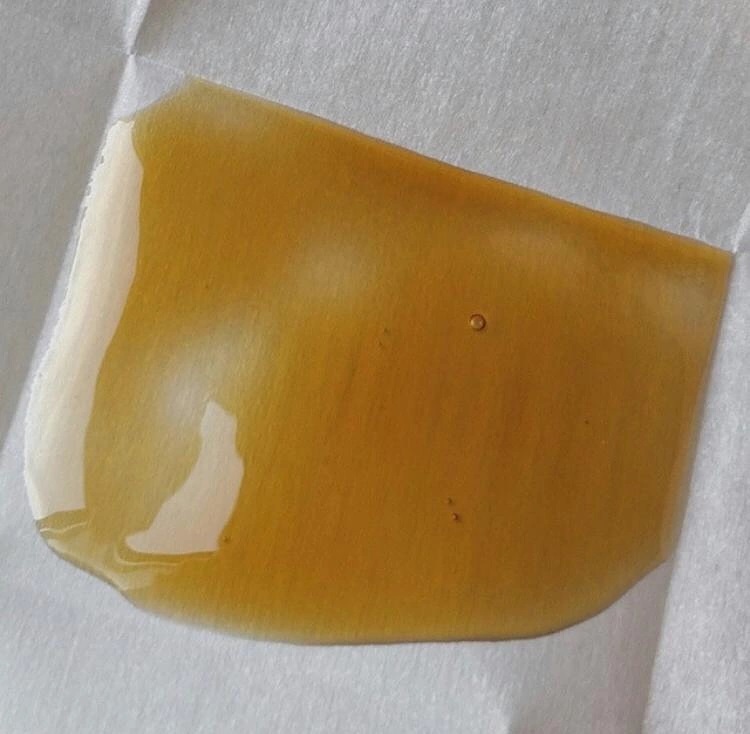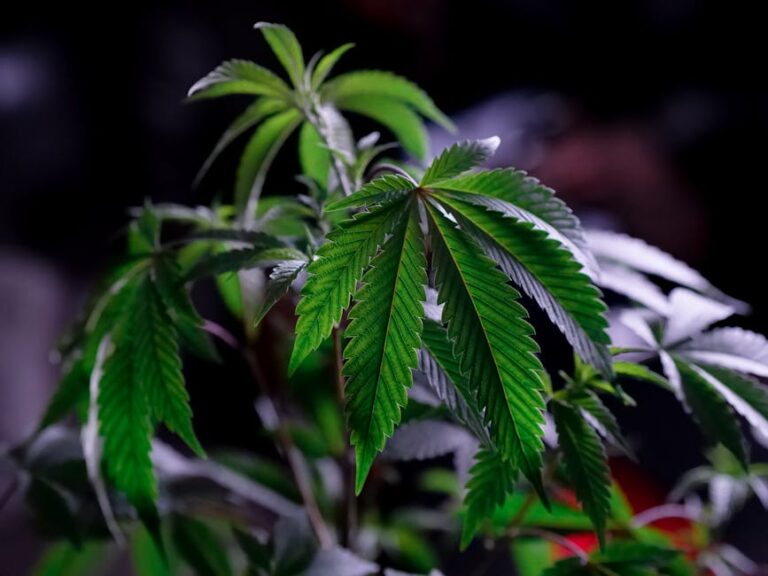How Is THCA Made: Top Secrets Revealed in 2024
How is THCA made? This question piques the curiosity of many cannabis enthusiasts eager to explore this intriguing compound. Simply put, THCA, or tetrahydrocannabinolic acid, is a non-psychoactive cannabinoid found in raw cannabis plants.
Unlike its well-known counterpart THC, which delivers the famous “high,” THCA must undergo a change through heat to become psychoactive. This conversion occurs in a process known as decarboxylation, where THCA transforms into the THC that alters our perception.
Understanding THCA is crucial for anyone venturing into cannabinoids. This compound holds potential therapeutic benefits, such as anti-inflammatory and neuroprotective properties, without the mind-altering effects associated with THC.
Cannabis enthusiasts, like Alex seeking reliable, potent products, are drawn to THCA for its purity and versatility. Whether in the form of flower, diamonds, or isolates, THCA provides options for those seeking therapeutic effects without intoxication. As we dig further into the production and uses of THCA, you’ll find why it matters in the evolving landscape of cannabis.

Understanding THCA
THCA, or tetrahydrocannabinolic acid, is a naturally occurring cannabinoid found in the cannabis plant. It is the raw form of the more widely known THC, but unlike THC, THCA does not produce any psychoactive effects. This means consuming THCA won’t give you the “high” typically associated with cannabis.
Cannabinoid Properties
THCA is one of many cannabinoids present in cannabis. Cannabinoids are chemical compounds that interact with our body’s endocannabinoid system, which plays a role in regulating various physiological processes. THCA is known for its non-intoxicating properties, making it an appealing option for those seeking potential health benefits without the psychoactive effects.
THCA as a Precursor to THC
The journey from THCA to THC is a fascinating one. In the cannabis plant, THCA is the precursor to THC. When cannabis is exposed to heat—like when it’s smoked, vaped, or cooked—THCA undergoes a process called decarboxylation. During this process, THCA loses a carboxyl group and transforms into THC, which is the compound responsible for the psychoactive effects.
This change is key to understanding the different uses of cannabis. While THCA itself doesn’t cause a high, it holds potential therapeutic benefits. Some studies suggest that THCA may have anti-inflammatory, neuroprotective, and anti-emetic properties, offering relief without altering the mind.
Why THCA Matters
People are increasingly interested in THCA for its versatility and potential health benefits. Whether used as a raw plant, in tinctures, or as crystalline diamonds, THCA provides a way to experience cannabis’s therapeutic properties without the high.
As more research unfolds, the cannabis industry and consumers alike are keen to explore THCA’s full potential. This exploration is driving innovation in how THCA products are made and used, promising new avenues for wellness and medical applications.
In the next sections, we will dig deeper into how THCA is made and the various forms it takes, from flowers to diamonds, revealing its significance in the cannabis world.
How is THCA Made
THCA Flower Production
THCA production begins with the cannabis plant, specifically hemp. Hemp is cultivated to produce cannabinoid-rich flowers that are abundant in THCA. The process starts with careful hemp cultivation. Farmers focus on creating the right environment for the plants to thrive. This involves selecting the right seeds, ensuring adequate sunlight, and maintaining optimal soil conditions.
Once the plants reach the flowering stage, they start producing cannabinoid-rich buds. This stage is critical as it marks the beginning of THCA synthesis. During flowering, adjustments to the photoperiod and nutrient density are crucial. These adjustments improve the production of cannabinoids, including THCA, within the buds.
The harvested flowers are then carefully dried and cured to preserve the THCA content. When done right, the result is a high-quality THCA flower, ready for consumption or further processing.
THCA Diamonds Creation
The creation of THCA diamonds is a fascinating process that involves changing the THCA from its natural state in the flower to a pure crystalline form. This process begins with extraction, where THCA is isolated from the cannabis plant material. The extraction method used must be clean and efficient to ensure purity.
Once extracted, the THCA undergoes a nucleation process. This is where the magic happens. Under controlled conditions, the THCA molecules begin to form a crystalline structure. Think of it as the THCA molecules organizing themselves into a solid, gem-like form. This process is often referred to as “diamond mining” due to the appearance of the final product.
The resulting THCA diamonds are highly potent, with some reaching purity levels of up to 99%. They are prized for their purity and potency, offering a concentrated way to experience THCA’s benefits. These diamonds can be consumed on their own or combined with other cannabis products to create unique formulations.
The meticulous process of producing THCA flowers and diamonds ensures that consumers receive a product that is both potent and pure, paving the way for innovative uses in the cannabis industry.
THCA vs. Other Cannabinoids
When discussing cannabinoids, understand how THCA compares to other well-known compounds like THC, Delta-8, and Delta-9. Each of these cannabinoids has unique properties and effects on the body.
THCA vs. THC
THCA (tetrahydrocannabinolic acid) is the precursor to THC (tetrahydrocannabinol). In its raw form, THCA is non-psychoactive, which means it doesn’t produce a high. However, when THCA is heated through smoking, vaping, or cooking, it undergoes a process called decarboxylation and converts into THC. This conversion is what gives THC its psychoactive properties, leading to the “high” associated with cannabis use.
THCA vs. Delta-8
Delta-8 THC is a minor cannabinoid found in the cannabis plant. It’s known for producing milder psychoactive effects compared to Delta-9 THC. While THCA itself is non-psychoactive, once converted to THC, it is more closely related to Delta-9 than Delta-8 in terms of effects. Delta-8 offers a less intense experience, which some users prefer for its more subtle impact on mood and cognition.
THCA vs. Delta-9
Delta-9 THC is the most common form of THC and is well-known for its potent psychoactive effects. When THCA is converted into Delta-9 THC, it provides the traditional cannabis high. Delta-9 is often considered stronger than both Delta-8 and the effects resulting from THCA conversion, making it the standard for measuring psychoactive potency in cannabis products.

Understanding these differences is crucial for consumers seeking specific effects from their cannabis products. Whether you’re looking for non-psychoactive benefits or a particular level of euphoria, knowing how THCA compares to other cannabinoids can help guide your choices.
THCA Forms and Uses
THCA is a versatile cannabinoid available in several forms, each offering unique ways to experience its benefits. Let’s explore the different THCA forms and uses.
Flower
The most natural form of THCA is the raw cannabis flower. In this form, THCA is abundant and can be consumed in several ways. Smoking or vaping the flower heats it, converting THCA into THC through decarboxylation, leading to psychoactive effects. For those seeking non-psychoactive benefits, consuming raw flower in smoothies or salads is an option, though less common.
Patches
For those looking for a controlled and steady release of cannabinoids, THCA patches offer a convenient solution. These transdermal patches allow THCA to be absorbed through the skin, providing localized relief without the need for ingestion or inhalation. This method is particularly appealing for individuals seeking the therapeutic benefits of THCA without the high.
Diamonds
THCA diamonds are a highly concentrated form of the cannabinoid, prized for their purity and potency. These crystalline structures are created through a meticulous process that involves the nucleation of THCA. While they can be consumed on their own, diamonds are often combined with terpenes to improve flavor and effects. When heated, these diamonds transform into potent THC, making them a favorite among experienced users seeking strong effects.
Edibles
Incorporating THCA into edibles is another popular method. When used in cooking, the heat can decarboxylate THCA into THC, providing the psychoactive effects many seek. However, for a non-psychoactive experience, THCA can be used as a garnish or infused into cold foods and drinks. Edibles offer a discreet and tasty way to enjoy the benefits of THCA, though they take longer to take effect compared to other methods.
Each of these forms provides unique opportunities to experience THCA. Whether you’re interested in its raw benefits, looking for a potent high, or seeking therapeutic relief, there’s a THCA product to suit your needs.
Frequently Asked Questions about THCA
Is THCA natural or synthetic?
THCA is a natural cannabinoid found in the cannabis plant. It forms naturally as the plant grows and is present in the raw flower. Unlike synthetic cannabinoids, which are manufactured in labs, THCA is derived directly from the plant itself. This natural formation is part of what makes THCA appealing to those seeking plant-based wellness options.
Does THCA give you a high?
In its raw form, THCA is non-psychoactive, meaning it does not produce the “high” associated with THC. For THCA to have psychoactive effects, it must undergo decarboxylation. This process occurs when THCA is heated, such as when smoking or vaping, which converts it into THC, the compound responsible for the intoxicating effects. Therefore, consuming THCA without heating it will not result in a high.
Is THCA legal?
The legality of THCA depends on federal regulations and state laws. Under federal law, THCA itself is not classified as a controlled substance, but its conversion to THC can complicate its legal status. Some states have specific laws governing the sale and possession of THCA products, especially those that can be converted to THC. It’s important to check local laws to ensure compliance, as regulations can vary significantly from one state to another.
Conclusion
At Rosin Hitters, we are committed to producing high-quality, solventless concentrates that showcase the natural benefits of THCA. Our unique approach ensures that our products are pure and flavorful, without the use of chemical solvents. This aligns with the growing demand for cleaner and more natural cannabis options.
THCA benefits extend beyond its raw form. As a non-psychoactive cannabinoid, THCA offers potential therapeutic properties without the high associated with THC. This makes it an attractive option for those seeking relief from inflammation, nausea, and neuroprotective benefits, among other uses.
By focusing on solventless extraction methods, we preserve the integrity and potency of THCA, providing our customers with a product that is both effective and safe. Whether you’re interested in THCA diamonds, isolate powder, or other forms, our products are designed to meet diverse needs and preferences.
